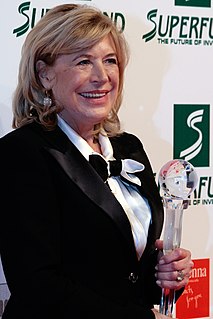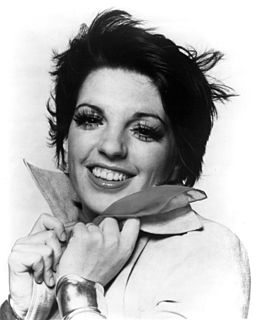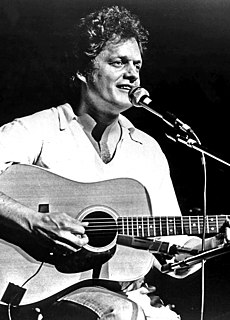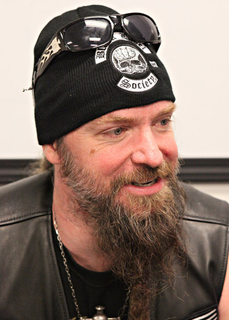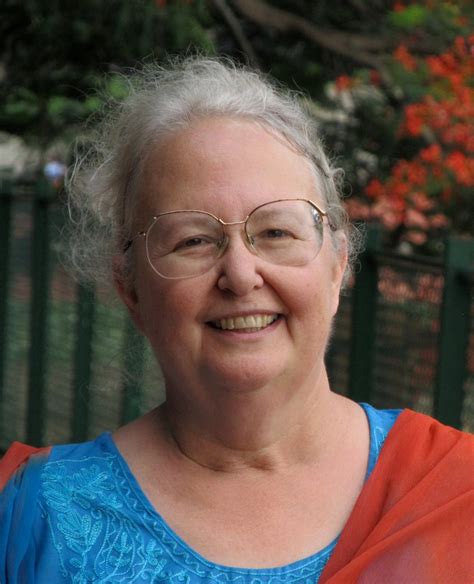A Quote by John Hurt
What I like about [Berthold] Brecht, it's very interesting. When Helene Weigel came over and somebody talked about Lotte Lenya and said "well, she wasn't alienating." And Weigel said "No, no, no. Why, Lotte Lenya was so true - who cares?" She said: "Berti only developed the theory of alienation in order to stop bad acting." I heard her say that. Now that's brilliant.
Related Quotes
As he was about to leave, she said, "Murtagh." He paused and turned to regard her. She hesitated for a moment, then mustered her courage and said, "Why?" She though he understood her meaning: Why her? Why save her, and now why try to rescue her? She had guessed at the answer, but she wanted to hear him say it. He stared at her for the longest while, and then, in a low, hard voice, he said, "You know why.
I love you, Eliza,” I said. She thought about it. “No,” she said at last, “I don’t like it.” “Why not?” I said. “It’s as though you were pointing a gun at my head,” she said. “It’s just a way of getting somebody to say something they probably don’t mean. What else can I say, or anybody say, but, ‘I love you, too’?
I'll just be your brother from now on." he said, looking at her with a hopeful expectation that she would be pleased, which made her want to scream that he was smashing her heart into pieces and he had to stop. "That's what you wanted, isn't it?" It took her a long time to answer, and when she did, her own voice sounded like an echo, coming from very far away. "Yes," she said, and she heard the rush of waves in her ears and her eyes stung as if from sand or salt spray. "That's what I wanted.
(on Marilyn Monroe) I was walking down Broadway with her and nobody was stopping us. She was going to (Stella Adler's) actors' studio, and she was taking me to show me what it was all about. And I said to her: "How come nobody is taking your picture?" She said: "Well, watch." She took her scarf off, straightened her shoulders, and draped something another way, and we were surrounded. It must have been 400 people. And I said: "Now I know why!"
One of my mentors was Patricia Schroeder, and one night she came to me on the floor and she said to me, "Why are we sitting in Congress, when a lot of women would try to do it and couldn't? Why are we here and others aren't?" And I thought back and said it was because my father believed in me and she said the same thing, she said her father believed in her and thought she could do anything.
I was over at Alison's [McGhee], I think we were playing Scrabble. I remember we were both complaining - yeah, we sound like whiners - about how hard writing is, and how we didn't have a story to work on. Alison said, 'Why don't we work on writing something together,' and I said, 'Eh, I don't know if I could work that way.' She said, 'Well, just show up here and we'll see,' and I said, 'Well, what would it be about?' She said, 'Duh, it'd be about a tall girl and a short girl.' So I agreed to come and try it for a day.
[Short Talk on Sylvia Plath] Did you see her mother on television? She said plain, burned things. She said I thought it an excellent poem but it hurt me. She did not say jungle fear. She did not say jungle hatred wild jungle weeping chop it back chop it. She said self-government she said end of the road. She did not say humming in the middle of the air what you came for chop.
Try saying this: 'What's true for me today is that I have angry feelings concerning what I heard you say when you said what you said. It reminds me of what my mother said when she said what she said, and that hurts me so that's where I'm at with this, and it's not all right with me for today.' This should help to avoid a lot of communication problems.


